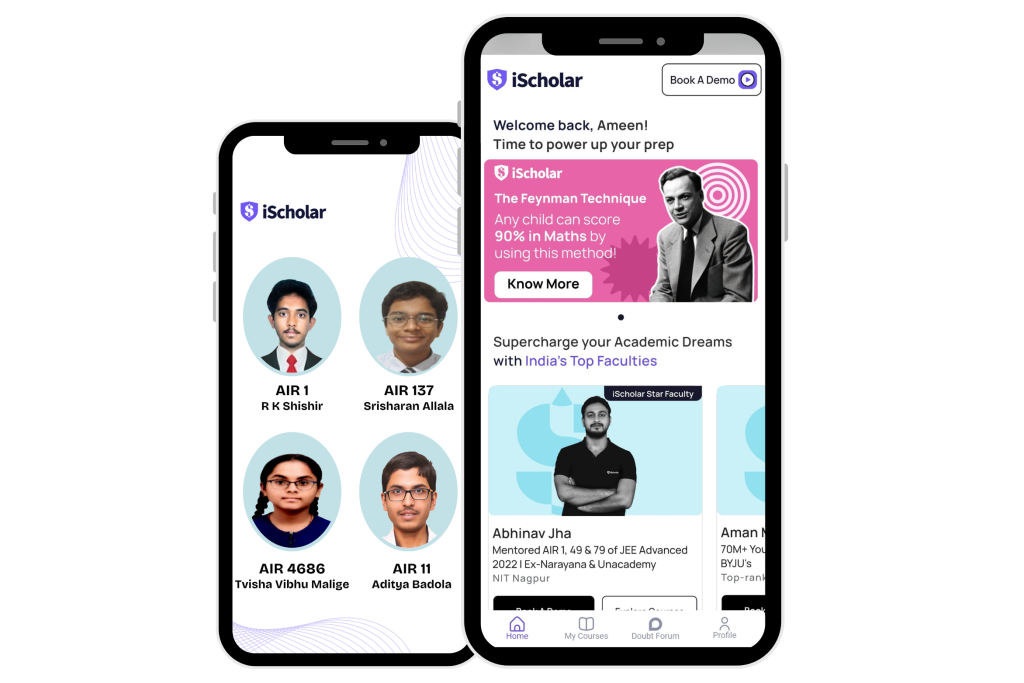Looking to kick-start your engineering career with a prestigious government-funded institution? Look no further than GFTI colleges! These premier colleges offer an unparalleled academic experience, top-notch facilities, and excellent placement opportunities, all under the umbrella of the highly competitive JEE Mains exam.
Whether you’re an aspiring engineer or simply looking to explore the world of technical education, GFTI colleges under JEE Mains are the perfect launchpad for your career in engineering. Let’s take a closer look at what makes GFTI colleges such a desirable destination for engineering aspirants.
What is JEE Main GFTI?
JEE Main GFTI refers to the admission process of Government Funded Technical Institutes (GFTIs) through the Joint Entrance Examination (JEE) Main exam. JEE Main is a national-level engineering entrance exam conducted by the National Testing Agency (NTA) in India. It is the gateway for admission to undergraduate engineering programs offered by various institutions across the country, including GFTIs.
GFTIs are prestigious institutions that are fully or partially funded by the government of India. These colleges offer undergraduate engineering programs in various courses such as Computer Science, Electrical, Mechanical, and Civil Engineering. Admission to these colleges is highly competitive, and only the top-ranking candidates in JEE Main exam are eligible to apply for admission.
The Joint Seat Allocation Authority (JoSAA) conducts centralized counseling as part of the JEE Main GFTI admission process. JoSAA is responsible for allocating seats in various GFTIs based on the rank obtained by the candidates in JEE Main exam. The GFTIs offer excellent academic facilities, state-of-the-art infrastructure, and industry exposure, which make them one of the most sought-after engineering institutions in India.
Admission to GFTI colleges through JEE Main is a highly competitive process, and the cutoff scores for GFTIs vary each year depending on various factors. Students need to understand the minimum qualifying percentile and cutoff scores for GFTI colleges to have a better chance of securing admission to these prestigious institutes.
To secure admission to GFTI colleges under JEE Mains, students need to meet the cut-off scores specified by these institutes. Let’s explore in detail the cut-off for GFTI colleges.
GFTI Colleges Cut Off
The number of candidates, the difficulty of the exam, and the number of seats available are some of the variables that affect the cutoff for GFTI institutions each year. The cutoff is the minimum score or rank required for admission to a particular GFTI college.
The cutoff for GFTI colleges is generally higher than that of other engineering colleges, as the admissions process is highly competitive. The candidates who score above the cutoff are eligible to apply for admission to the GFTI college of their choice.
Following the release of the JEE Main results, the Joint Seat Allocation Authority (JoSAA) announces the cutoff.. The cutoff is released separately for each round of counseling, and candidates must check the cutoff for the respective round to know their chances of getting admission to a particular GFTI college.
It is important to note that the cutoff for GFTI colleges varies for different branches of engineering. For instance, the cutoff for Computer Science Engineering (CSE) may be higher than that for Mechanical Engineering or Civil Engineering.
Students are encouraged to check the official websites of colleges to check the cutoff score with respect to their branches.
While general category students have to meet a certain minimum qualifying percentile to be eligible for admission, the cutoff scores for OBC candidates are often lower.
GFTI Colleges Cut Off for OBC
The following table shows the previous year’s GFTI cutoff for OBC category:
| Government Funded Technical Institutions (GFTIs) | Branch | National/State | Category – OBC |
| School of Planning & Architecture, New Delhi | Architecture | All India | 324 |
| Planning | All India | 529 | |
| School of Planning & Architecture, Bhopal | Architecture | All India | 479 |
| Planning | All India | 569 | |
| School of Planning & Architecture: Vijayawada | Architecture | All India | 481 |
| Planning | All India | 605 | |
| Institute of Infrastructure, Technology, Research and Management-Ahmedabad | Civil Engineering | All India | 16996 |
| Electrical Engineering | All India | 16709 | |
| Mechanical Engineering | All India | 8574 | |
| Institute of Technology, Guru Ghasidas Vishwavidyalaya, Bilaspur | Chemical Engineering | All India | 20869 |
| Civil Engineering | All India | 20562 | |
| Computer Science and Engineering | All India | 17238 | |
| Electronics and Communication Engineering | All India | 19840 | |
| Mechanical Engineering | All India | 20949 | |
| Information Technology | All India | 18745 | |
| Industrial and Production Engineering | All India | 21390 | |
| J.K. Institute of Applied Physics & Technology, Department of Electronics & Communication, University of Allahabad- Allahabad | Computer Science and Engineering | All India | 15210 |
| Electronics and Communication Engineering | All India | 17165 | |
| National Institute of Electronics and Information Technology, Aurangabad (Maharashtra) | Electronics System Engineering | All India | 17600 |
| Assam University, Silchar | Agricultural Engineering | All India | 21461 |
| Assam Only | 148142 | ||
| Computer Science and Engineering | All India | 17951 | |
| Assam Only | 108523 | ||
| Electronics and Communication Engineering | All India | 20252 | |
| Assam Only | 110806 | ||
| Sant Longowal Institute of Engineering and Technology | Chemical Engineering | All India | 20800 |
| Computer Science and Engineering | All India | 16723 | |
| Electrical Engineering | All India | 18790 | |
| Electronics and Communication Engineering | All India | 18139 | |
| Mechanical Engineering | All India | 20779 | |
| Instrumentation and Control Engineering | All India | 20796 | |
| Food Technology | All India | 21480 | |
| Gurukula Kangri Vishwavidyalaya, Haridwar | Computer Science and Engineering | All India | 17935 |
| Electrical Engineering | All India | 20754 | |
| Electronics and Communication Engineering | All India | 20389 | |
| Mechanical Engineering | All India | 21127 |
Now that we have discussed the GFTI colleges under JEE Mains cutoff scores, you might be wondering how you can secure admission to these prestigious institutes. While the cutoff scores are undoubtedly an essential factor, there are several other factors that you need to consider to increase your chances of getting admission to a GFTI college.
How Can I Get Admission in GFTI?
To get admission to a GFTI (Government Funded Technical Institute) in India, you generally need to follow these steps:
- Appear for the Joint Entrance Examination (JEE) Main exam, which is conducted by the National Testing Agency (NTA) twice a year (in January and April).
- Clear the JEE Main cutoff score for GFTIs, which is usually higher than the cutoff score for other engineering colleges.
- After clearing the JEE Main cutoff for GFTIs, you need to register for the JoSAA (Joint Seat Allocation Authority) counseling process, which is conducted online.
- During the JoSAA counseling process, you need to fill in your choices of colleges and courses in order of preference and lock them in.
- Based on your JEE Main score and your chosen preferences, JoSAA will allocate seats in GFTIs and other engineering colleges.
- If you are allocated a seat in a GFTI, you need to accept the seat by paying the seat acceptance fee and completing the admission formalities within the specified deadline.
- When selecting a college, placement record is undoubtedly one of the most crucial factors that students consider during the process.
Which GFTI Has Highest Placement?
The placement records of GFTI colleges vary each year, and it’s difficult to say which GFTI has the highest placement as the statistics change based on the batch and the recruitment scenario.
However, some of the top-ranked GFTI colleges in India that have consistently recorded high placement rates in the past include:
1. Birla Institute of Technology, Mesra, Ranchi.
2. Indian Institute of Engineering Science and Technology, Shibpur, West Bengal.
3. University of Hyderabad, Telangana
4. Indian Institute of Information Technology, Naya Raipur, Chattisgarh.
While several factors come into play when selecting a college, it is essential to know the minimum percentile required to be eligible for admission to a GFTI college. This information can help you gauge your chances of getting admission to a GFTI college based on your JEE Main score.
What Is the Minimum Percentile Required for GFTI?
The minimum percentile required for admission to GFTI colleges through JEE Main exam varies each year and depends on several factors, such as the total number of applicants, the difficulty level of the examination, and the number of seats available in each college.
In the past, the cutoff percentile for GFTI colleges has ranged from 75 to 90 percentile. it’s advisable to check the cutoff scores of previous years and the admission guidelines of the colleges you are interested in to get a better understanding of the minimum percentile required to be eligible for admission.
It’s also important to note that meeting the minimum cutoff percentile is not a guarantee of admission to GFTI colleges, as admission is also based on other factors such as academic performance and performance in the counseling round.
FAQ: GFTI Colleges under JEE Mains
1. GFTI colleges in Tamil Nadu
In Tamil Nadu, the only college that is a part of GFTI is the Indian Institute of Food Processing Technology, located in Thanjavur.
2. GFTI highest package
The highest package offered by GFTI colleges varies from college to college and is dependent on various factors such as the course, the reputation of the college, the industry demand for the course, and the performance of the student. However, according to recent reports, top GFTI colleges have reported packages going up to 43-51 lakhs per annum.
3. GFTI colleges in Hyderabad
The “University of Hyderabad” is the only GFTI college located in Hyderabad.
4. Can I get GFTI with 70 percentile?
Admission to GFTI colleges is based on JEE Main exam scores, and the minimum cutoff score required for admission to GFTI colleges varies each year based on various factors, such as the number of applicants, the difficulty level of the exam, and the number of seats available in each college.
It’s difficult to predict if you can get admission to a GFTI college with a 70 percentile in JEE Main, as the cutoff varies each year. However, it’s important to note that the JEE Main exam is just one of the eligibility criteria for admission to GFTI colleges. Other factors such as academic performance, extracurricular activities, and performance in the counseling round may also be considered during the admission process.
5. Can I get GFTI with 92 percentile?
With a percentile score of 92 in JEE Main, you have a slight chance of being eligible for admission to GFTI colleges. However, it’s important to note that admission to GFTI colleges is based on several factors, including JEE Main score, cutoff score, academic performance, and performance in the counseling round, among others.
Conclusion:
GFTI colleges under JEE Mains provide excellent opportunities for students to pursue technical education and secure good placements in the industry. Admissions to GFTI colleges are based on JEE Main scores, which are an essential component of the admission process, along with other factors such as academic performance and performance in the counseling round.
While the cutoff percentile for GFTI colleges varies each year, it’s important to note that meeting the minimum percentile requirement is not a guarantee of admission, and students need to perform well in other evaluation criteria.





